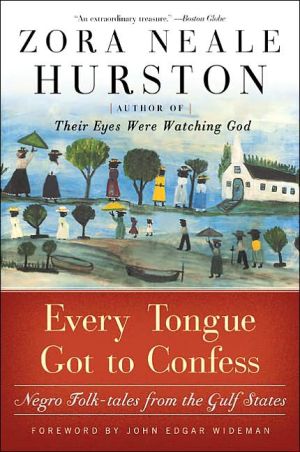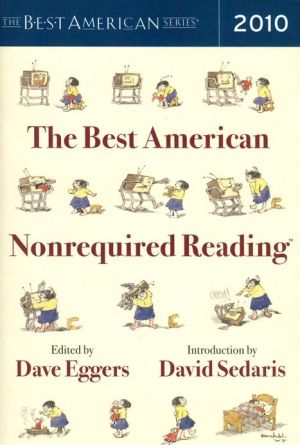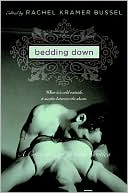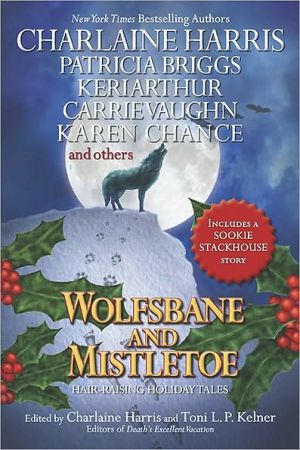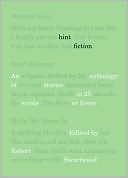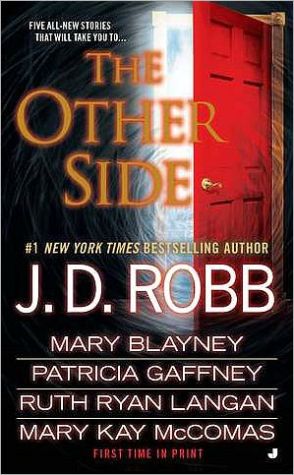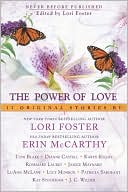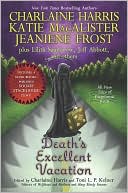Every Tongue Got to Confess: Negro Folk-Tales from the Gulf States
Every Tongue Got to Confess is an extensive volume of African American folklore that Zora Neale Hurston collected on her travels through the Gulf States in the late 1920s.\ The bittersweet and often hilarious tales — which range from longer narratives about God, the Devil, white folk, and mistaken identity to witty one-liners — reveal attitudes about faith, love, family, slavery, race, and community. Together, this collection of nearly 500 folktales weaves a vibrant tapestry that celebrates...
Search in google:
Every Tongue Got to Confess is the first new book by Zora Neale Hurston to be published in over 50 years. The most extensive volume of African American folklore that Hurston left behind, this collection of nearly 500 folktales gathered in the late 1920s represents a major part of her literary legacy and a rich slice of African American life in the rural South. The bittersweet and often hilarious tales reveal attitudes about faith, love, family, slavery, race, and community. Together, these folktales weave a vibrant tapestry that celebrates the black oral tradition.Los Angeles Times - Julius LesterIn Every Tongue Got to Confess, the book's great value for us today is in the way it returns us to Hurston's literary and academic roots as a folklorist and anthropologist and to the people and material which inspired and enriched her fiction.
Chapter One\ \ \ Why God Made Adam Last\ \ \ God wuz through makin' de Ian' an' de sea an' de birds an' de animals an' de fishes an' de trees befo' He made man. He wuz intendin' tuh make 'im all along, but He put it off tuh de last cause if He had uh made Adam fust an' let him see Him makin' all dese other things, when Eve wuz made Adam would of stood round braggin' tuh her. He would of said: "Eve, do you see dat ole stripe-ed tagger (tiger) over dere? Ah made. See dat ole narrow geraffe (giraffe) over dere? Ah made 'im too. See dat big ole tree over dere? Ah made dat jus' so you could set under it."\ God knowed all dat, so He jus' waited till everything wuz finished before he made man, cause He knows man will lie and brag on hisself tuh uh woman. Man ain't found out yet how things wuz made -- he ain't meant tuh know.\ --James Presley.\ \ \ When God first put folks on earth there wasn't no difference between men and women. They was all alike. They did de same work and everything. De man got tired uh fussin 'bout who gointer do this and who gointer do that.\ So he went up tuh God and ast him tuh give him power over de woman so dat he could rule her and stop all dat arguin'.\ He ast Him tuh give him a lil mo' strength and he'd do de heavy work and let de woman jus' take orders from him whut to do. He tole Him he wouldn't mind doing de heavy [work] if he could jus' boss de job. So de Lawd done all he ast Him and he went on back home -- and right off he started tuh bossin' de womanuh-round.\ So de woman didn't lak dat a-tall. So she went up tuh God and ast Him how come He give man all de power and didn't leave her none. So He tole her, "You never ast Me for none. I thought you was satisfied."\ She says, "Well, I ain't, wid de man bossin' me round lak he took tuh doin' since you give him all de power. I wants half uh his power. Take it away and give it tuh me."\ De Lawd shook His head. He tole her, "I never takes nothin' back after I done give it out. It's too bad since you don't like it, but you shoulda come up wid him, then I woulda 'vided it half and half."\ De woman was so mad she left dere spittin' lak a cat. She went straight tuh de devil. He tole her: "I'll tell you whut to do. You go right back up tuh God and ast Him tuh give you dat bunch uh keys hangin' by de mantle shelf, den bring 'em here tuh me and I'll tell you whut to do wid 'em, and you kin have mo' power than man."\ So she did and God give 'em tuh her thout uh word and she took 'em back tuh de devil. They was three keys on dat ring. So de devil tole her whut they was. One was de key to de bedroom and one was de key to de cradle and de other was de kitchen key. He tole her not tuh go home and start no fuss, jus' take de keys and lock up everything an' wait till de man come in -- and she could have her way. So she did. De man tried tuh ack stubborn at first. But he couldn't git no peace in de bed and nothin' tuh eat, an' he couldn't make no generations tuh follow him unless he use his power tuh suit de woman. It wasn't doin' him no good tuh have de power cause she wouldn't let 'im use it lak he wanted tuh. So he tried tuh dicker wid her. He said he'd give her half de power if she would let him keep de keys half de time.\ De devil popped right up and tole her naw, jus' keep whut she got and let him keep whut he got. So de man went back up tuh God, but He tole him Jus' lak he done de woman.\ So he ast God jus' tuh give him part de key tuh de cradle so's he could know and be sure who was de father of chillun, but God shook His head and tole him: "You have tuh ast de woman and take her word. She got de keys and I never take back whut I give out."\ So de man come on back and done lak de woman tole him for de sake of peace in de bed. And thass how come women got de power over mens today.\ --Old Man Drummond.\ \ \ God done pretty good when He made man, but He could have made us a lot more convenient. For instance: we only got eyes in de front uh our heads -- we need some in de back, too, so nuthin' can't slip upon us. Nuther thing: it would be handy, too, ef we had one right on de end uv our dog finger (first finger). Den we could jest point dat eye any which way. Nuther thing: our mouths oughter be on top uv our heads 'stead uh right in front. Then, when I'm late tuh work I kin just throw my breakfast in my hat, an' put my hat on my head, an' eat my breakfast as I go on tuh work. Now, ain't dat reasonable, Miss? Besides, mouths ain't so pretty nohow.\ --George Brown.\ \ \ One day Christ wuz going along wid His disciples an' He tole 'em all tuh pick up uh rock an' bring it along. All of 'em got one, but Peter...\ Every Tongue Got to Confess. Copyright © by Zora Hurston. Reprinted by permission of HarperCollins Publishers, Inc. All rights reserved. Available now wherever books are sold.
ForewordxiIntroductionxxiA Note to the ReaderxxxiiiNegro Folk-tales from the Gulf States1Appendix 1257Appendix 2259Appendix 3"Stories Kossula Told Me"265
\ From Barnes & NobleIf you're a fan of Zora Neale Hurston, you've been waiting a long time: This is first book by the great African-American author to appear in more than 50 years! Compiled in the late '20s, Every Tongue Got to Confess is Hurston's collection of nearly 500 folktales from the rural black South. As Hurston devotees know, the Alabama-born author regarded folklore as her first love, and it was always an integral element of her creativity.\ \ \ \ \ Janet MaslinIn compiling Every Tongue Got to Confess Hurston clearly placed as much emphasis on imagination as on authenticity. She gives these stories a sharp immediacy and a fine supply of down-to-earth humor. \ — New York Times\ \ \ Julius LesterIn Every Tongue Got to Confess, the book's great value for us today is in the way it returns us to Hurston's literary and academic roots as a folklorist and anthropologist and to the people and material which inspired and enriched her fiction. \ — Los Angeles Times\ \ \ \ \ From The CriticsIn 1927, the aspiring anthropologist Zora Neale Hurston set out from New York for the Deep South, hoping to amass a collection of the African-American folklore she had loved since her childhood. Armed with a scholarly grant and her academic training, Hurston bought herself a car and a pistol and headed off for sawmills, turpentine camps and juke joints where black vernacular culture prospered. The experience was pivotal in Hurston's career, reintroducing her to the Southern folk who would be at the center of her fiction and reminding her of the vitality of their culture. She had feared that "Negroness" was disappearing beneath urban society; the journey showed her that it was alive and well and "still in the making." Unfortunately, most of the material Hurston collected was never published, and what did reach the public had often been reworked to meet the demands of publishers and patrons. So it was a lucky event when the manuscript of this collection was recently discovered moldering in the Library of Congress. Published here for the first time, these folktales of the black South appear as Hurston wanted them seen: as unadorned testaments to the suffering and the vibrant, creative humor of her people. \ —Sean McCann \ \ \ \ \ \ \ Publishers WeeklyAlthough Hurston is better known for her novels, particularly Their Eyes Were Watching God, she might have been prouder of her anthropological field work. In 1927, with the support of Franz Boas, the dean of American anthropologists, Hurston traveled the Deep South collecting stories from black laborers, farmers, craftsmen and idlers. These tales featured a cast of characters made famous in Joel Chandler Harris's bowdlerized Uncle Remus versions, including John (related, no doubt, to High John the Conqueror), Brer Fox and various slaves. But for Hurston these stories were more than entertainments; they represented a utopia created to offset the sometimes unbearable pressures of disenfranchisement: "Brer Fox, Brer Deer, Brer 'Gator, Brer Dawg, Brer Rabbit, Ole Massa and his wife were walking the earth like natural men way back in the days when God himself was on the ground and men could talk with him." Hurston's notes, which somehow got lost, were recently rediscovered in someone else's papers at the Smithsonian. Divided into 15 categories ("Woman Tales," "Neatest Trick Tales," etc.), the stories as she jotted them down range from mere jokes of a few paragraphs to three-page episodes. Many are set "in slavery time," with "massa" portrayed as an often-gulled, but always potentially punitive, presence. There are a variety of "how come" and trickster stories, written in dialect. Acting the part of the good anthropologist, Hurston is scrupulously impersonal, and, as a result, the tales bear few traces of her inimitable voice, unlike Tell My Horse, her classic study of Haitian voodoo. Though this may limit the book's appeal among general readers, it is a boon for Hurston scholars and may, as Kaplan says in her introduction, establish Hurston's importance as an African-American folklorist. (Dec.) Forecast: Hurston's name will ensure this title ample review coverage, and it should do well among lovers of folktales, particularly those curious about Hurston's career in the field. Copyright 2001 Cahners Business Information.\ \ \ \ \ Library JournalFolklorist Hurston, who died in 1960, collected these stories in the late 1920s from African Americans in the rural South. The tales range from one liners to more complex stories, divided by subject: God tales, neatest trick tales, preacher tales, devil tales, and so on. Hurston replicates the vernacular in which these were told. In this recorded version, Ruby Dee and Ossie Davis perform and are able to include the often sly, often sparkling wit of the original tellers. A real treat for students of folklore, black culture, or anyone who likes hearing good stories well-told. Nann Blaine Hilyard, Lake Villa Dist. Lib., IL Copyright 2002 Cahners Business Information.\ \ \ \ \ Kirkus ReviewsThis entertaining collection, which was left unpublished in 1929 and only recently unearthed, is a fine companion to Hurston's earlier volumes, Tell My Horse (1937) and Mules and Men (1935). The late (1891-1960) author of the classic novels Jonah's Gourd Vine and Their Eyes Were Watching God was also a knowledgeable folklorist, as we learn again from John Edgar Wideman's tributory foreword and Editor Kaplan's informative introduction. The latter discusses Hurston's energetic research into indigenous tales and legends, supported by minimal grants, the WPA, and a wealthy white patron. The stories themselves-ranging from single-sentence utterances to fully detailed and developed anecdotes-are arranged in 17 specific categories focusing on such subjects as gender relations ("Women Tales"); racial inequity and enmity ("Massa and White Folks Tales"); creation stories, many akin to Joel Chandler Harris's Uncle Remus stories ("Talking Animal Tales"); and several varieties of folk supernaturalism ("God Tales," "Devil Tales"). Frequent use of racial epithets and dialect reminiscent of minstrel shows will probably offend many contemporary readers, but are indisputable evidence of the authenticity of Hurston's presentations: in almost every case of stories she heard directly from ordinary people, many of them illiterate. There is inevitable repetition, but not as much as one might expect. And there are many pleasures: impudent alternative versions of familiar biblical tales and good-natured mockery of religious truisms ("What in the hell does ...[an] angel need with ... [Jacob's] ladder when he's got wings"); sly references to racial imperatives (a black man falling off a roof notices he'sabout to land on a white woman-"so he turnt right roun' and fell back upon dat house"); a ribald explanation of why women don't serve in the army, and several clever one-liners about the physical (and marital) problems encountered by snails. A rich harvest of native storytelling.\ \
